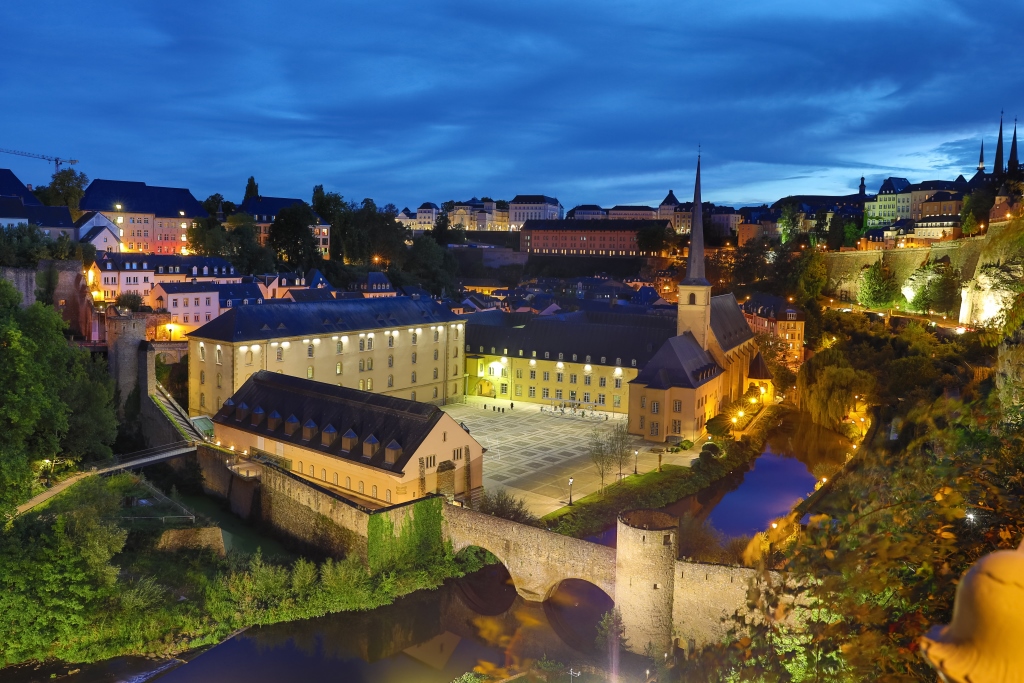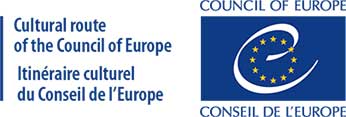The Enlarged Partial Agreement on Cultural Routes of the Council of Europe

The Enlarged Partial Agreement on Cultural Routes of the Council of Europe (EPA) established in 2010 seeks to reinforce the potential of Cultural Routes for cultural cooperation, sustainable territorial development and social cohesion, with a particular focus on themes of symbolic importance for European unity, history, culture and values and the discovery of less well-known destinations.
The EPA helps to strengthen the democratic dimension of cultural exchange and tourism through the involvement of grassroots networks and associations, local and regional authorities, universities and professional organisations. It contributes to the preservation of a diverse heritage through theme-based and alternative tourist itineraries and cultural projects.
The EPA follows the Council of Europe’s policy guidelines, decides the programme strategy and awards “Council of Europe Cultural Route” certification. It is open to member and non-member States of the Council of Europe aiming at providing political support for national, regional and local initiatives to promote culture and tourism. The complete list of EPA Member States can be found here.
The EPA comprises two statutory bodies:
- The Governing Board of the EPA is composed of representatives from ministries of member States and awards the certification “Cultural Route of the Council of Europe”. The Congress of Local and Regional Authorities of the Council of Europe, the European Parliament, the European Commission, UNWTO, UNESCO and the OECD participate in its work.
- The Statutory Committee of the EPA is composed of representatives from Ministries of Foreign Affairs and adopts the EPA’s annual budget.
A major event is the Annual Advisory Forum, which brings together representatives of Cultural Routes, national bodies, networks and international heritage and tourism organisations. The Cultural Routes Annual Advisory Forum is organised in close collaboration with one of the member States of the EPA.
According to the Committee of Ministers Resolution CM/Res(2013)66 article 1, the aim of the EPA is as follows:
The Enlarged Partial Agreement (EPA) shall contribute to the promotion of European identity and citizenship through knowledge and awareness of Europe’s common heritage, and the development of cultural links and dialogue within Europe as well as with other countries and regions. It shall seek to shape a shared cultural space through the development of cultural routes aiming to foster awareness-raising about heritage, education, networking, quality and sustainable cross-border tourism and other related activities.
The EPA shall contribute to reinforcing the potential of cultural routes for cultural co-operation, sustainable territorial development and social cohesion, with a particular focus on themes of symbolic importance for European unity, history, culture and values and the discovery of less well-known destinations. It shall strengthen the democratic dimension of cultural exchange and tourism through the involvement of grassroots networks and associations, local and regional authorities, universities and professional organisations. It shall contribute to the preservation of a diverse heritage through theme-based and alternative tourist itineraries and cultural projects.
The tasks of the EPA are defined in the Committee of Ministers Resolution CM/Res(2013)66 article 1 as follows:
The EPA, drawing in particular on the expertise of the European Cultural Routes Institute, shall provide advice and expert assistance for the development, implementation, evaluation and promotion of cultural routes. This involves expertise on:
- setting up and functioning of project networks and organisations and the development of co‑operation agreements;
- research on the historical background of the routes and the development of the cultural and educational content and activities of the cultural routes;
- development of a sustainable tourist offer based on the cultural routes, thus contributing to the economic well-being of regions;
- preparation and implementation of financing and promotion strategies;
- training and capacity-building for cultural routes operators, in particular in relation to Council of Europe and other international standards in the field of heritage and culture, as well as standards of professional practice in the field of tourism;
- promotion, visibility and all other aspects related to the compliance with the Council of Europe standards.
The EPA shall support networking and exchange between cultural routes operators and other partners in the field of cultural tourism, in particular for:
- the development of a common vision and strategy for cultural routes as tourism products;
- the development of partnerships to increase the resources available for cultural tourism in Europe;
- the identification and dissemination of good practice.
The EPA shall contribute to developing new orientations and standards in relation to cultural routes and tourism in response to the challenges and concerns of modern societies.
The EPA shall develop further methodologies for the promotion of cross-border cultural tourism.
The EPA shall award the Council of Europe Cultural Route certification in accordance with Resolution CM/Res(2013)67-rev the rules for the award of the “Cultural Route of the Council of Europe” certification.
Accession and participation to the EPA are defined in the in the Committee of Ministers Resolution CM/Res(2013)66 article 2:
2.1 Any member State of the Council of Europe or a Contracting Party to the European Cultural Convention, as well as the European Union, may join the EPA by notification addressed to the Secretary General of the Council of Europe.
2.2 The Committee of Ministers, in its composition restricted to the representatives of the member States of the EPA, may, by the majority stipulated in Article 20.d of the Statute of the Council of Europe, invite any non-member State of the Council of Europe to join the EPA, following consultation of EPA members which are not members of the Council of Europe. A non-member State which receives such an invitation shall notify the Secretary General of its intention to become a member of the EPA.
2.3 Member States of the Council of Europe and other Contracting Parties to the European Cultural Convention not joining the EPA may request the status of observer with EPA for a period of maximum one year, without any financial contribution. Decisions in such matters will be made by the Governing Board of the EPA.
2.4 The European Union is invited to join the EPA with the same rights and obligations as the other members of the EPA. Pending its accession to the EPA, the European Union will continue to participate in the work in accordance with arrangements laid down by each body of the EPA.
2.5 In accordance with Statutory Resolution Res(93)28 on partial and enlarged agreements and at their request, the United Nations World Tourism Organisation (OMT), the OECD and UNESCO will be invited to participate in meetings of the EPA as observers without the right to vote.
2.6 The Committee of Ministers, in its composition restricted to the representatives of the States members of the Enlarged Partial Agreement, may, by the majority stipulated in Article 20.d of the Statute of the Council of Europe, following consultation of EPA members which are not members of the Council of Europe, authorise the EPA to invite other international intergovernmental organisations, the representative of the Council of Europe Cultural Routes, NGOs or other bodies who contribute to EPA’s objectives, to participate in its work, without the right to vote.
2.7 The Parliamentary Assembly, the Congress of Local and Regional Authorities of the Council of Europe and the Conference of INGOs, may participate in the work of the EPA in accordance with Article 3.5 (definition of the EPA Governing Board).
The Enlarged Partial Agreement on Cultural Routes of the Council of Europe is based on two Resolutions from the Committee of Ministers of the Council of Europe:

Ноймюнстерскоеаббатство, Люксембург
Enlarged Partial Agreement on Cultural Routes of the Council of Europe, Secretariat
Abbaye de Neumünster
Bâtiment Robert Bruch
28, rue Münster, L-2160 Luxembourg
Grand-Duché de Luxembourg
Tel: +352 24 12 50
[email protected]



